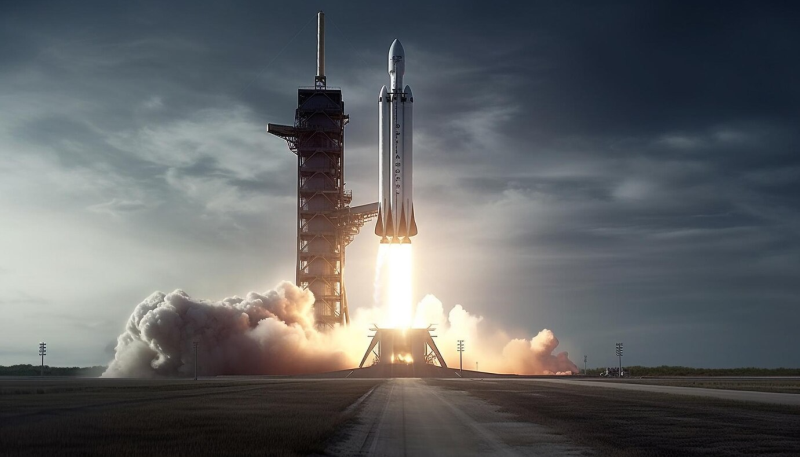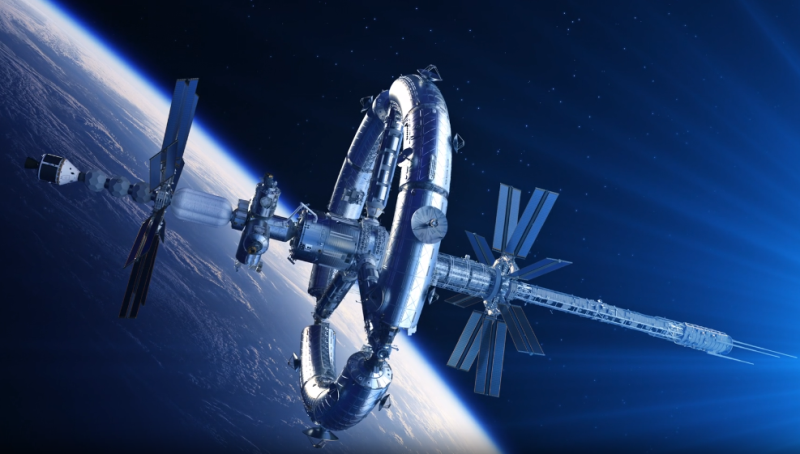As the satellite industry continues to advance and expand its presence in the modern world, there is a growing awareness of the environmental consequences associated with satellite launches. This article delves into the ecological implications of satellite launches and the proactive measures being taken within the space industry to mitigate their carbon footprint, highlighting the pressing need for sustainability in space exploration.
The Environmental Challenges of Satellite Launches

Rocket Emissions and Global Warming: Satellite launches rely on rockets, which emit substantial quantities of greenhouse gases, including carbon dioxide (CO2) and water vapor. These emissions contribute significantly to global warming and climate change. The release of CO2 into the atmosphere is a major concern, and it underscores the urgent need to reduce carbon emissions in space endeavors.
Ozone Layer Depletion: Some rocket propellants release chlorine compounds that can deplete the Earth’s protective ozone layer, allowing harmful ultraviolet radiation to reach the surface. The consequences of ozone layer depletion extend beyond just environmental damage, affecting human health and ecosystems. This issue highlights the far-reaching impacts of space activities on our planet’s protective systems.
Efforts to Reduce the Carbon Footprint in Satellite Launches

Green Propellants: Research and development efforts are ongoing to create eco-friendly rocket propellants that produce fewer harmful byproducts during combustion. These “green propellants” aim to minimize the environmental impact of satellite launches by reducing the emission of harmful substances and pollutants into the atmosphere. The development and adoption of green propellants are crucial steps toward a more sustainable space industry.
Reusable Rockets: Companies like SpaceX have made significant strides in creating reusable rocket technology. The reusability of launch vehicles can dramatically decrease the number of rockets required for satellite launches, thus reducing emissions and costs. This approach not only benefits the environment but also makes space exploration more economically viable and accessible.
Electric Propulsion: Electric propulsion systems, such as ion thrusters, are being incorporated into satellites to reduce the fuel required for station-keeping and orbital adjustments. By using electricity as a propellant, these systems contribute to a significant reduction in the use of traditional chemical propellants, further minimizing the ecological impact of satellite operations.
Improved Launch Efficiency: Optimization of launch trajectories and orbital insertions can minimize fuel consumption, further reducing emissions. The fine-tuning of launch procedures and orbital operations is a fundamental aspect of reducing the carbon footprint of satellite launches. Efficiency gains in this area are key to achieving more sustainable space activities.
Global Satellite’s Commitment to Sustainability
Global Satellite, a prominent player in the satellite industry, plays a pivotal role by working closely with suppliers and manufacturers who provide the necessary satellite technology. They actively seek ways to promote sustainability within their operations and supply chain, ensuring that the products they offer are aligned with environmentally responsible practices. Global Satellite’s commitment to sustainability sets a positive example for the industry and underscores the importance of environmental responsibility in satellite technology development and deployment.
A Sustainable Future for Space Exploration

As satellite technology continues to evolve and expand its applications, so does the emphasis on sustainability and environmental responsibility. The collective efforts within the space industry to minimize its ecological impact are critical in ensuring a sustainable and responsible future for space exploration. The development of cleaner and more efficient propulsion technologies, coupled with increased reuse of rocket components, will pave the way for a greener and more sustainable era of space exploration. The urgency of addressing these environmental challenges cannot be overstated, as we navigate our path toward a more sustainable future in the cosmos.
